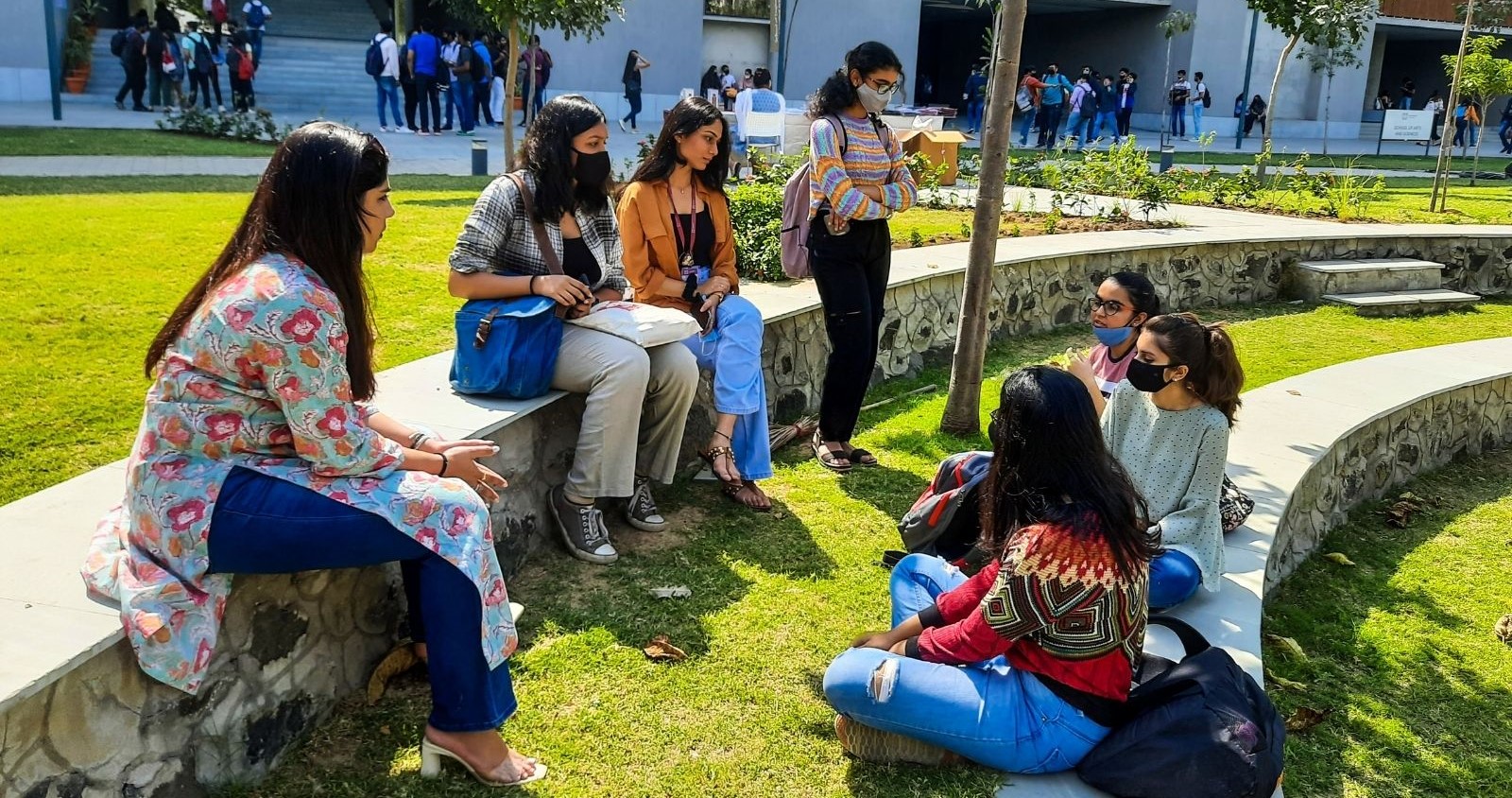|
|
|
|---|

The Global History Lab at Princeton is a platform for learning, skill development, and collaboration in the creation of new narratives across global divides. Through innovative pedagogical practices, and training in oral history methods, the GHL promotes human capabilities of understanding by developing narrative voices and listening skills between strangers.
The online GHL course “A History of the World Since 1300” educates students in varied countries in the history of globalisation and prepares them to become knowledge producers for a wider world. One of the core principles of the GHL course is to have teams of students engage with each other across borders. Along the way, they learn about conflict and teamwork and connectedness. To that end, GHL relies on partners, including Ahmedabad University. Ahmedabad students have an opportunity to engage in a course alongside scholars and learners connected to a network of global study.
Ahmedabad students can participate in the course “A History of the World since 1300” offered by the Global History Lab during the Monsoon semester. The GHL is committed to the pursuit of the production of knowledge about the global past globally — in a way that is innovative, economical and reaches across the world’s fractures. It is an online course, taught by Professor Jeremy Adelman, and assisted by a Teaching Fellow from Princeton. The course situates the study of global history in a global classroom and encourages students to learn from and through interactions with peers near and far. Students not only learn by reading and watching lectures, but also by analysing historical documents and applying their disciplinary and regional knowledge. Among the students are refugee and migrant learners, too often excluded from higher education, in Africa, Europe, and West Asia, which also makes the course an innovative experiment in humanitarian higher education.
Nishitha Mandava, a third-year History student at Ahmedabad, who participated in the 2021 GHL course says, “The course was highly innovative and collaborative. It helped to understand some of the prominent themes in history, including nationalism, capitalism, and imperialism. Simultaneously, it helped us engage with primary sources of various natures like peace treaties, exchanged correspondences between significant figures, and so on. The weekly meetings fostered a dialogue regarding these themes between students from around the world. This personally helped me to engage with perspectives of various students and reflect on my own perspectives…. Overall, this course was interactive, rigorous, intriguing, and helped me deepen my perspective regarding various facets of world history.”
A third-year student of Bachelor of Science (Honours) at Ahmedabad, Nikhita Vinod Gautam, says, “We traced history through 700 years, understanding each process as impacting peoples all over the world. I found it amazing, simply because of how all-encompassing it was. I had fun working with my colleagues, and it was so interesting to talk to Professor Adelman and listen to him. I remember our last session with him, where we tried to grasp what comes at the end of this history: the present.”
Dhriti Bhayani, a Bachelor of Business Administration student, found methods such as narrative mapping significant for her work. She says, “Narrative mapping, focused on the global context, enabled us to easily place an event on the global timeline…Overall, I feel I gained a lot from this course and that I have taken advantage of the interdisciplinary learning at Ahmedabad University in the best way possible!”
In Winter semester 2022, our students participated in Global History Dialogue Project, which is a sequel to the earlier course on Global History. While focusing on Oral History as a method, this course also investigates the key philosophical and methodological categories to the discipline of history: Historian, Archive, sources of historical knowledge, etc. It seeks to understand the intertwined nature of different categories, such as environment, oceanic worlds, merchant networks, empires, and nations in the production of this history.
Pedagogically, a vital part of the course is collaborative teamwork on historical case studies and sharing ideas with different research teams around the world. After intensive training in oral history research and ethics, learners would embark on independent research projects that they then share with their global colleagues, creating new knowledge and narratives that connect local stories to global themes.

Professor Adelman teaching History of the World at GHL |
The current collaborators in the GHL network include: Fundación del Pino (Madrid, Spain), Panteion University (Athens, Greece), Potsdam University (Potsdam, Germany), Sciences Po (Paris, France), Al Quds University (East Jerusalem, Palestine), American University of Central Asia (Bishkek, Kyrgyzstan), Bard College Berlin (Berlin, Germany), Central European University (Vienna, Austria), European Humanities University (Vilnius, Lithuania), Fulbright University of Vietnam (Ho Chi Minh City, Vietnam), American University of Nigeria (Wuro Hausa, Nigeria), American University of Iraq Suleimania (Suleimania, Iraq), Modern University of Business and Science (Beirut, Lebanon), Brac University (Daka, Bangladesh), Kiryandongo Settlement (Bweyale, Uganda), Kakuma & Dadaab Refugee Camps (Kenya), Sapienza University (Rome, Italy), University of Nigeria Ibadan (Ibadan, |
Nigeria), Los Andes University (Bogotá, Colombia), Ahmedabad University (Ahmedabad, India), Universidad Tres de Febrero (Buenos Aires, Argentina), and Princeton University (Princeton US).
We, at Ahmedabad, find the core concerns of GHL – to consider global history as a form of dialogue to enable an inclusive and integrated world, and to engage with innovative pedagogical and research methods to do so – resonate strongly with the principal values of the global history research agenda at the School of Arts and Sciences. And thus, Ahmedabad University is an important – and the only Indian – member of the GHL network. The collaboration with the Global History Lab at Princeton is an opportunity to put into practice a theoretical commitment to interdisciplinary innovation in the humanities, and a chance for students to learn from the global knowledge networks that are being enabled by technology.